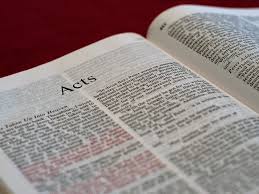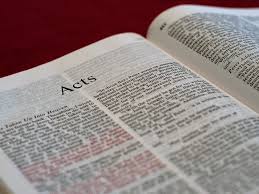 The Forty-Second in a Series of Sermons on the Gospel of John
The Forty-Second in a Series of Sermons on the Gospel of John
Jesus entered Jerusalem to the great fanfare of the people. In their minds, God’s promised messianic blessing is playing out before their very eyes. Jesus, the Davidic king and miracle worker has entered the royal city, no doubt, to claim the throne of David and to lead the people of Israel to victory over Rome. Jesus proclaimed that his hour had come. Surely, Jesus was referring to his entrance into the city and the beginning of his reign. But those who watched and listened carefully to Jesus after he entered the city knew that Jesus was not about to meet the crowd’s expectations. In fact, Jesus said his hour referred to something soon to come, that he would be glorified, that a time of judgment would come when he is “lifted up” and draws all people unto himself. At the end of John 12, we learn that time of judgment mentioned by Jesus begins when his public ministry comes to a close, and Jesus withdraws from the public eye. Having ended his public ministry, Jesus begins to prepare his disciples for his departure from them. What the people of Israel thought to be a time of God’s blessing was, in reality, the beginning of God’s judgment upon Israel, when the messianic light departs, and the darkness of spiritual judgment falls upon the people who cheer for a Messiah in whom they do not believe, and who’s mission they do not understand.
As we continue our series on the Gospel of John, we have spent the last several weeks working our way through the twelfth chapter of John. We have considered Mary’s anointing of Jesus with expensive perfume in preparation for his death and burial. We have read of Jesus’ triumphal entry into Jerusalem on Palm Sunday, and then we have considered our Lord’s remarkable words to a group of Greeks (Gentile God-fearers) who were in Jerusalem to witness the coming Passover.
Previously in John’s account, Jesus had only spoken of his hour–when he will be glorified–as a future event. Remarkably, he tells a group of Gentiles that his hour has come, meaning his messianic mission is coming to its end. When Jesus spoke these words about his hour having arrived, people assumed that he was referring to his triumphal entrance into the city. But he was not speaking of Palm Sunday. Instead, Jesus was speaking of events soon to come–his death and resurrection. Using the analogy of a grain of wheat which falls into the ground and then germinates, Jesus is speaking of how he must die, and then be raised from the dead. He speaks of how those who follow him must lose their lives in order to receive his (eternal life). Jesus did not sound like a man about to lead Israel to victory over Rome
As he was speaking to the Greeks (and probably to the disciples as well) a crowd gathered, listening to Jesus’ teaching about the significance of the events they had just witnessed. Jesus describes the great anguish of his soul because his hour has come, implying that he must suffer and die for our sins. Jesus then calls upon YHWH to be glorified through the events about to unfold. The Father speaks from heaven, confirming that Jesus’ is indeed fulfilling the will of God. The crowd heard the noise, knew it to be extraordinary (if not supernatural), but did not understand the words spoken. But Jesus knew that his heavenly Father was speaking, and Jesus reveals to those listening what the Father had said.
Upon hearing the Father’s voice, in verse 31, Jesus announces “now is the judgment of this world; now will the ruler of this world be cast out.” Two times in this verse Jesus speaks of what his impending death and resurrection will accomplish now. When Jesus suffers and dies upon the cross, God will save his people from the guilt and power of sin. At the same time, his death upon the cross is a graphic picture to the world of how seriously God takes human sin. As a sign of judgment, the cross tells all people that either Jesus Christ suffers and dies for the sinner, and in the sinner’s place, or else the sinner must be punished by God for their guilt of their own sins. While the cross is the visible sign of God’s love and grace toward his people, it is also the guarantee to those who reject Jesus’ person and work that God will judge the world on the last day–yet as we will see in our text, that judgment (at least upon Israel), is about to begin.
To read the rest of this sermon, Click Here
 Wednesday, July 29, 2015 at 09:05AM
Wednesday, July 29, 2015 at 09:05AM 










